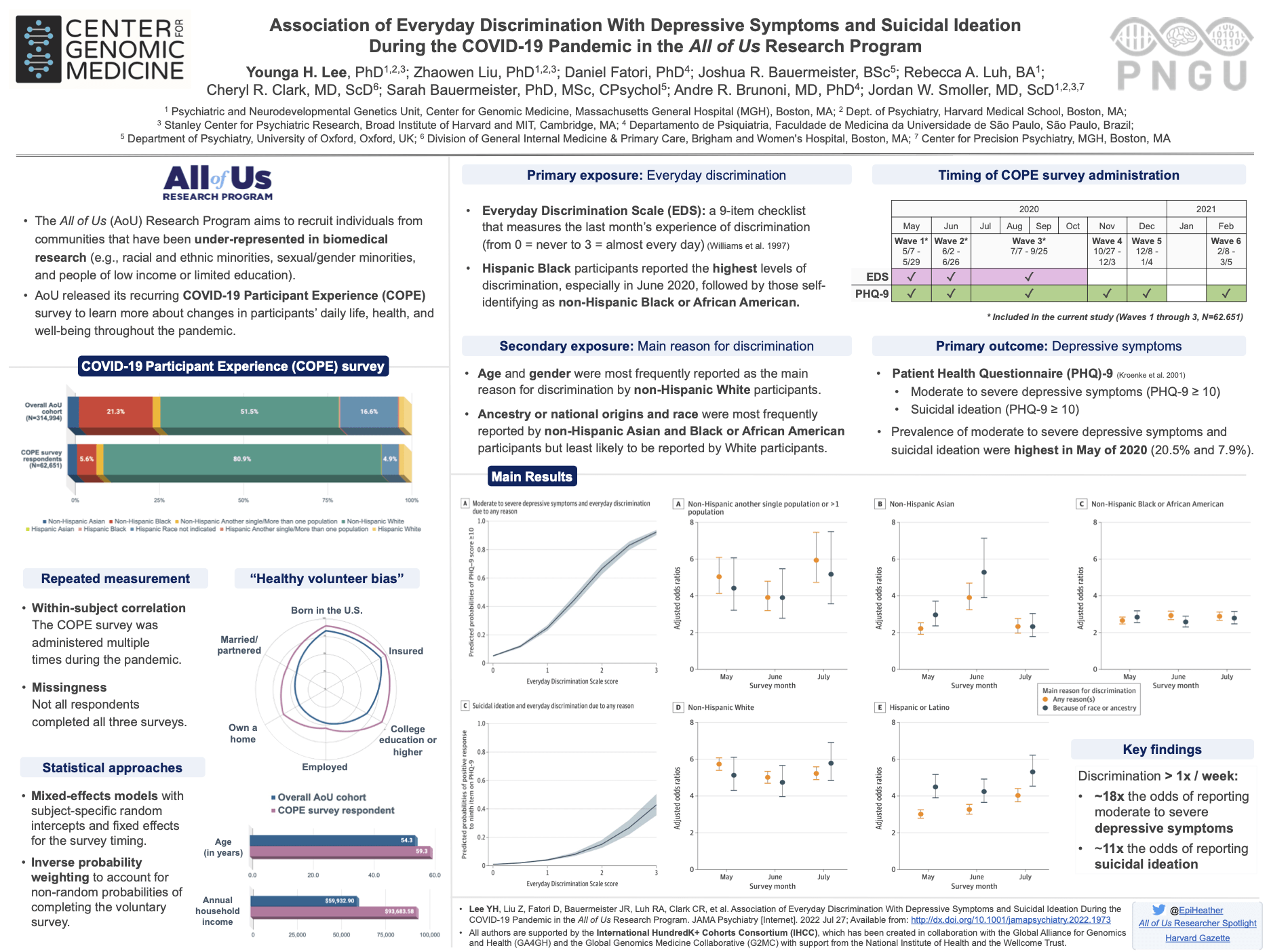Scientific Abstract
Introduction: The COVID-19 pandemic has coincided with an increase in depressive symptoms as well as a growing awareness of health inequities and structural racism in the United States. We investigated the mental health impact of everyday discrimination during the pandemic in a large and diverse cohort of the All of Us Research Program.
Methods: Using repeated assessments in the early months of the pandemic, we fitted mixed-effects models to assess the associations of discrimination with depressive symptoms and suicidal ideation, and applied inverse probability weights to account for nonrandom probabilities of completing the voluntary survey. The exposure and outcome measures were ascertained using the Everyday Discrimination Scale and the Patient Health Questionnaire (PHQ)-9, respectively. Scores for PHQ-9 that were greater than or equal to 10 were classified as moderate to severe depressive symptoms, and any positive response to the ninth item of the PHQ-9 scale was considered as presenting suicidal ideation.
Results: A total of 62,651 individuals (mean [SD] age: 59.3 [15.9] years; female: 41,084 [65.6%]) completed at least 1 assessment between May and July of 2020. There was a dose-response relationship, with 17.68-fold [13.49-23.17] and 10.76-fold [7.82-14.80] increase in the odds of depressive symptoms and suicidal ideation respectively, on experiencing discrimination more than once a week. The association with depressive symptoms was greater when the main reason for discrimination was race, ancestry, or national origin among Hispanic or Latino participants at all three timepoints, and among non-Hispanic Asian participants in May and June. Furthermore, high levels of discrimination were as strongly associated with depressive symptoms as was history of prepandemic mood disorder diagnosis.
Search posters

